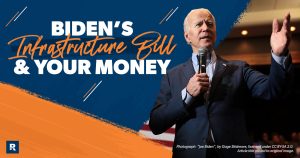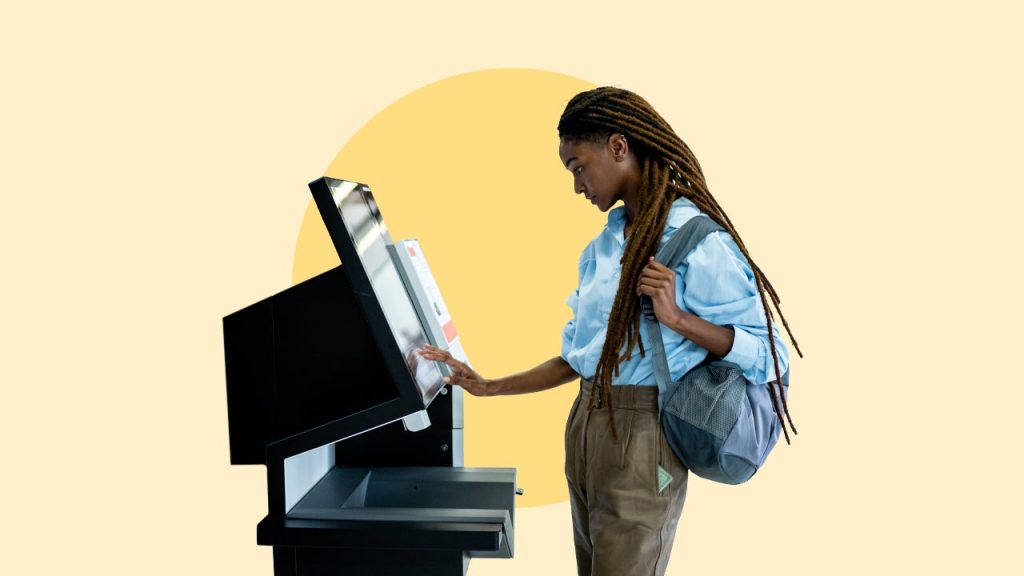Would you tip a robot? That’s essentially what I was asked to do when a self-checkout machine at Newark Liberty International Airport prompted me for a tip. I picked a premade sandwich out of a refrigerator, scanned it at a self-service kiosk and was presented with an on-screen tip prompt.
I didn’t feel an ounce of guilt hitting the “no tip” button, but this is the sort of thing that’s giving tipping a bad name. Another outrageous example was when I was asked to tip while making a reservation at a pick-your-own strawberry farm. Situations like this are often considered part of “tip creep.”
What is tip creep and why is it growing?
Tip creep refers to being asked to tip in unconventional places. The most widespread example that has caught on in recent years is at coffee shops, but self-checkout machines and pick-your-own strawberry farms fit the bill as well.
There’s a fun “what’s the weirdest place you’ve been prompted to tip?” forum on Reddit. A dermatologist’s office, a car mechanic shop and a movie theater ticket counter are three of my favorites. Those all feel pretty excessive. Doctors, in particular, are highly paid professionals bound by strict regulations and ethical codes. They should not be soliciting tips under any circumstances.
The proliferation of tip prompts has hit counter-service transactions the hardest. In these settings, you used to have to go out of your way to tip (dropping bills or coins into an old-fashioned tip jar). Now you have to go out of your way not to tip at many coffee shops and other businesses.
That’s particularly true when you pay with a credit or debit card and the cashier flips the payment terminal around with suggested tip amounts of 15, 20 and 25 percent. Sometimes it’s awkward not to tip in these settings, which leads to “guilt tipping” – hitting one of those buttons yet wishing you hadn’t.
Is inflation to blame?
Inflation is a key contributor to why consumers are annoyed about these interactions. Many people feel like they’re already paying a lot for the product or service and grumble about forking over even more dough.
But inflation also helps explain why businesses have their digital hands out. They’re looking for ways to supplement their employees’ wages without having to foot the bill. Tipping has become a hidden surcharge.
About six in 10 Americans have at least one negative opinion about tipping, according to Bankrate’s 2024 Tipping Culture survey. The most common complaint is that businesses should pay their employees better rather than relying so much on tips (37 percent). More than a third (35 percent) say tipping culture has gotten out of control, and a similar number (34 percent) are annoyed about pre-entered tip screens.
Who we should always tip
It’s important to distinguish between a quick food pickup and a sit-down dining experience. We should tip for service at a full-service restaurant. Unfortunately, our survey revealed that 33 percent of diners skip the tip at least some of the time, including a whopping 65 percent of Gen Zers (ages 18-27) and 44 percent of millennials (ages 28-43). That’s shocking, and it’s taking money out of servers’ pockets.
The federal tipped minimum wage is just $2.13 per hour. It hasn’t changed since 1991. The typical waiter or waitress literally depends on tips to make a living. Yet tips have steadily eroded in recent years.
In 2019, prior to the COVID-19 pandemic, Bankrate found that 77 percent of sit-down restaurant-goers always tipped the waitstaff. That stepped down to 75 percent in 2021 and 73 percent in 2022, according to an earlier Bankrate survey. Last year, tipping really fell off as inflation took a big bite out of consumers’ wallets. Just 65 percent of diners always tipped in 2023. We saw a slight increase this year, to 67 percent.
It has been a similar story for hair stylists, barbers, food delivery workers and taxi/rideshare drivers. At present, only 55 percent of Americans always tip their hair stylist or barber, compared with 63 percent in 2019. Just 51 percent always tip for food delivery (versus 63 percent in 2019) and 41 percent always tip a taxi or rideshare driver (eight percentage points lower than the 49 percent who did so in 2019).
We should tip in all of these situations – ideally 20 percent of the bill. Maybe a little less for food delivery or a ride, but at least 10 to 15 percent. The workers’ livelihood depends on it. In America, it’s part of the social contract at sit-down restaurants, hair salons and when you utilize gig economy services such as food delivery and rideshares. These drivers are typically independent contractors who pay for their own gas and car insurance and earn a sizable percentage of their income from tips.
When it’s okay to skip the tip
Etiquette expert Thomas Farley, who goes by the tagline “Mister Manners,” told Inside Edition that simple counter-service orders do not typically warrant tips – unless the barista truly goes above and beyond.
“Perhaps you’re at your favorite coffee shop and they know your order and the barista spends 15 minutes getting it exactly the [right] way, they know your name, those employees definitely deserve a tip,” Farley added.
Farley also says that most home repairs don’t require a gratuity. “For service professionals like plumbers, my feeling is that unless there are extenuating circumstances and they came out in the wee hours of the morning, there’s no expectation to tip,” he explained to CNBC. “You’re probably paying on an hourly basis, most likely a very high amount.”
The bottom line
Tipping can be annoying, confusing and controversial, but it’s here to stay. In our most recent survey, only 14 percent of Americans said they would be willing to pay higher prices in order to do away with tipping. And technology has made it easier than ever for businesses to embed tip prompts into the point-of-sale process.
While you may be frustrated the next time you’re asked to tip for a simple takeout order, remember that it’s okay to hit the no-tip button sometimes. But please make sure to tip at places like sit-down restaurants where tips make up the vast majority of employees’ wages.
Have a question about credit cards? E-mail me at [email protected] and I’d be happy to help.
Read the full article here
















